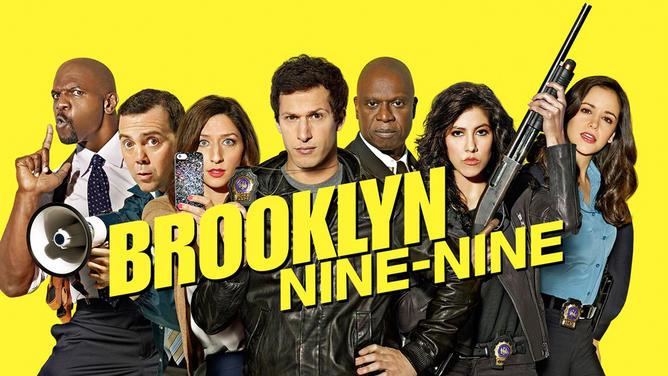Brooklyn Nine-Nine, a popular American sitcom that aired from 2013 to 2021, stands as a compelling example of television’s evolving capacity to blend humor with serious social commentary. Set against the backdrop of a fictional New York City police precinct, the show employs comedy as its primary vehicle, yet it does not shy away from addressing weighty issues such as racial profiling, LGBTQ+ rights, and workplace discrimination. This dual approach raises an intriguing question: can comedy effectively engage with and illuminate serious societal concerns without undermining their gravity? Through an analytical lens, this article explores how Brooklyn Nine-Nine navigates the delicate balance between humor and seriousness, examining whether the show’s comedic framework enhances or detracts from its treatment of complex themes. By dissecting specific episodes and character arcs, we aim to understand the role of comedy in facilitating discourse on important social issues within the context of mainstream entertainment.
Exploring the Balance Between Humor and Social Commentary
In the realm of television, Brooklyn Nine-Nine has emerged as a brilliant example of how comedy can effectively address serious societal issues. This acclaimed series uses humor as a tool to engage audiences while simultaneously shedding light on significant topics such as racial profiling, LGBTQ+ rights, and workplace discrimination. Through its diverse cast and clever writing, the show manages to explore these themes without compromising on entertainment, offering a nuanced perspective that resonates with viewers.
- Racial Profiling: The series doesn’t shy away from confronting racial issues, often using its characters to depict the complexities of racial profiling and bias in law enforcement.
- LGBTQ+ Representation: With characters like Captain Holt, the show highlights the struggles and triumphs of LGBTQ+ individuals, making representation a central theme.
- Workplace Dynamics: By portraying various workplace challenges, from sexism to power dynamics, the series offers a critical look at professional environments.
Through its unique blend of humor and social commentary, Brooklyn Nine-Nine demonstrates that comedy can be a powerful vehicle for discussing and reflecting on critical issues. This balance not only keeps the audience entertained but also encourages them to think critically about the world around them.

Analyzing Character Development in Addressing Real-World Issues
In the vibrant tapestry of Brooklyn Nine-Nine, character development serves as a conduit for addressing real-world issues, weaving humor with poignant social commentary. The show’s ensemble cast, led by the charismatic Jake Peralta, navigates a multitude of contemporary challenges, from systemic racism to LGBTQ+ rights, all while maintaining the comedic rhythm that defines the series. The evolution of characters such as Captain Raymond Holt and Rosa Diaz exemplifies this approach. Holt, as a gay, Black police captain, frequently confronts issues of discrimination and bias, offering viewers a nuanced perspective on leadership and identity. Meanwhile, Rosa’s coming-out storyline presents an authentic exploration of bisexuality, challenging stereotypes and fostering representation.
- Holt’s Leadership: His journey addresses workplace discrimination and highlights the intersectionality of race and sexual orientation.
- Rosa’s Identity: Her character development provides a platform for discussions on bisexuality, emphasizing authenticity and acceptance.
The show’s adept handling of these characters’ arcs illustrates how comedy can effectively engage with serious issues, prompting reflection while delivering laughter. By intertwining personal growth with broader societal themes, Brooklyn Nine-Nine not only entertains but also educates, making it a significant cultural touchstone in the realm of comedic television.

The Role of Satire in Highlighting Systemic Challenges
In the landscape of modern television, satire has emerged as a powerful tool for shining a light on systemic issues, and Brooklyn Nine-Nine stands as a prime example of how comedy can address serious societal challenges. By weaving humor with critique, the show manages to explore complex themes such as racial profiling, police reform, and LGBTQ+ representation without alienating its audience. The brilliance of satire lies in its ability to present these topics in a manner that is both engaging and thought-provoking, inviting viewers to reflect on the realities behind the laughter. Through its diverse cast and storylines, Brooklyn Nine-Nine uses satire to question the status quo, making it a catalyst for conversations about real-world issues.
The effectiveness of satire in the show can be attributed to several key elements:
- Character Development: Characters like Captain Holt and Rosa Diaz are portrayed with depth, highlighting the struggles and triumphs of marginalized communities within a traditionally rigid institution.
- Situational Comedy: By placing characters in exaggerated scenarios, the show underscores the absurdities and injustices inherent in systemic problems, prompting viewers to question their own perceptions.
- Balanced Storytelling: Episodes often juxtapose light-hearted humor with serious undertones, ensuring that critical messages are conveyed without losing the comedic essence.
Through these techniques, Brooklyn Nine-Nine demonstrates that satire is not just about laughter but also about creating a space for dialogue and reflection on pressing societal issues.

Recommendations for Integrating Comedy with Thoughtful Discourse
When integrating comedy with meaningful discussions, it’s crucial to strike a balance that respects both the humor and the gravity of the topics at hand. Brooklyn Nine-Nine provides a model for this integration by using its platform to address issues such as racial profiling, LGBTQ+ rights, and police reform. To emulate this approach, creators should consider the following:
- Contextual Humor: Ensure that jokes are contextually appropriate and do not undermine the seriousness of the issue being discussed.
- Character Development: Use characters as vehicles for change, allowing them to grow and learn from the situations they encounter.
- Balanced Storytelling: Weave comedy and serious discourse seamlessly, ensuring that neither overshadows the other.
- Audience Engagement: Encourage viewers to reflect on the issues presented, perhaps through post-episode discussions or social media engagement.
By maintaining this balance, creators can ensure that their comedic content remains not only entertaining but also thought-provoking and socially relevant.
In Retrospect
“Brooklyn Nine-Nine” serves as a compelling case study in the realm of comedic television, illustrating the potential for humor to engage with and address serious societal issues. Through its nuanced portrayal of diverse characters and sensitive topics, the show demonstrates that comedy can be a powerful tool for reflection and conversation. While it does not always strike the perfect balance between levity and gravity, its efforts to integrate important social commentary into its narrative are noteworthy. The series invites audiences to consider the complexities of contemporary issues while maintaining an entertaining and accessible format. As viewers and creators continue to explore the boundaries of genre and subject matter, “Brooklyn Nine-Nine” stands as a testament to the evolving landscape of television, where comedy can indeed serve as a conduit for meaningful discourse.
